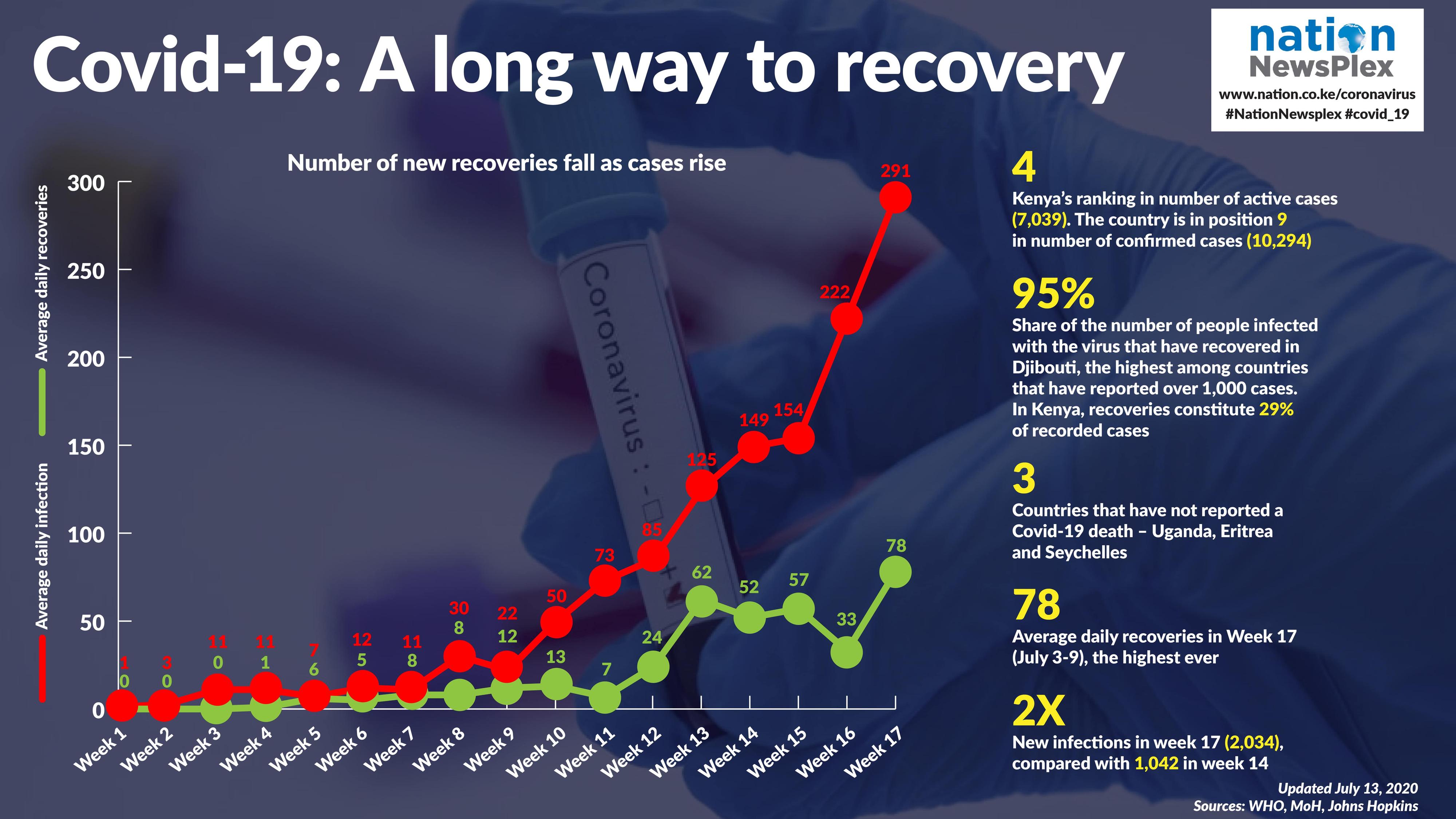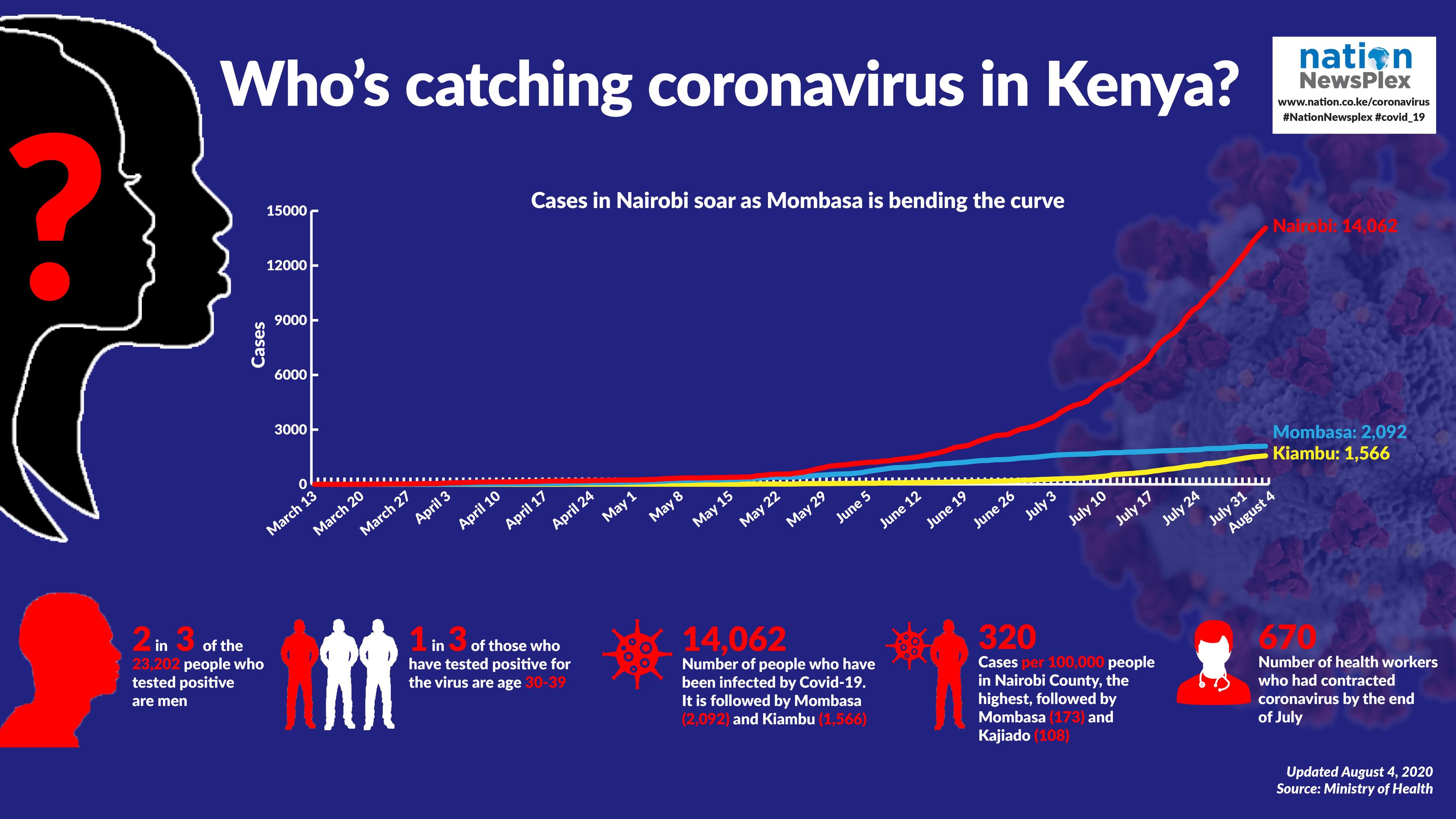Premium
10 Covid-19 facts that may surprise you
Since it was first reported in December 2019 in Wuhan, China, the novel coronavirus has spread around the world, infecting millions of people and causing the deaths of thousands others. Doctors and researchers are learning more about the virus daily. Find out some of what the experts have learned about the Covid-19.
Susceptible blood group
Genomic studies of patient from Italy and Spain show that a higher risk of developing Covid-19 and suffering respiratory failure in patients with type A blood. Researchers concluded in a recent study that people with type A blood have a 45 per cent higher risk of contracting the virus. In March, another study from China concluded that people with type A blood may have a higher risk of contracting the coronavirus than people with type O.
More than a respiratory disease
While the coronavirus is designated as a respiratory disease, evidence is mounting that it affects some people all over their body. A study published in the journal Lancet Psychiatry, which focused on patients treated in UK hospitals, found that the virus can trigger a range of brain complications including stroke and psychosis. Some people who suffered comparatively mild illness experienced lingering cognitive problems, memory loss and fatigue weeks after they test negative for the virus. The virus can also cause blood clots all over the body and attack some organs directly. One of the most troubling is its attack on the lining of the blood vessels, which in turn causes unnatural blood clotting. Doctors around the world have reported unusual strokes in younger patients, as well as pulmonary embolisms − blood clots in the lungs.
Making children ill
Several studies suggest that children are less likely to get the coronavirus or spread it but the virus might cause children's immune systems to overreact, a condition referred to as paediatric multisystem inflammatory syndrome. Symptoms include persistent fever, inflammation, poor function in one or more organs, and shock. As of mid-May New York was investigating over 100 cases of this syndrome and three deaths. A large study in South Korea found that while children younger than 10 years transmit the virus less to others but those between ages 10-19 spread it as well as adults.
Global spread
The first Covid-19 case outside China was recorded in Thailand on 13 January 2020. As at July 21, the following territories had not reported any cases of the virus: Kiribati, Marshall Islands, Micronesia, Nauru, North Korea, Palau, Samoa, Solomon Islands, Tonga, Turkmenistan, Tuvalu, Vanuatu. The last of the 55 African countries to record a case was Lesotho on May 13. Globally, there have been about 15.4 million confirmed infections, 630,000 deaths and 9.4 million recoveries .
Search for vaccines
Twenty-three out of the more than 160 vaccines researchers are developing against the coronavirus globally are in human trials. One vaccine has received approval for limited use in China. China’s Central Military Commission approved the use of the Ad5-nCoV vaccine by the military on June 25 for a period of one year. It has also been approved for human testing in Canada. Vaccines typically require years of research and testing before approval for large scale use, but scientists are racing to produce a safe and effective vaccine by next year.
Worst hit
More than half of the confirmed Covid-19 cases in Africa are in South Africa. As at July 23 the country had 394,948 infections, the fifth-highest globally and 5,940 deaths. With four per cent of the global population, the US is the current global coronavirus hotspot, contributing a quarter of all the 13.7 million Covid-19 confirmed cases worldwide. The country recorded 71,787 new infections on July 10, a single day record by a country. As at July 16, the US had reported 3,618,474, infections, the highest globally and 140,185
Deaths, almost equal to the number of lives lost in the countries with the next three highest death tolls.
Asymptomatic spread
Silent transmission of the virus could account for more than a half of infections, according to one new mathematical model by Canadian and US researchers. The findings published recently in the Proceedings of the National Academy of Sciences of the United States of America, estimated that more than a half of the infections were attributable to people not exhibiting symptoms (pre-symptomatic and asymptomatic). About 40 per cent of people infected with Covid-19 are asymptomatic. The fact that people can spread the virus without even knowing they have it is one of the reasons it is so lethal.
Aerosol transmission
The World Health Organization expanded its coronavirus guidance this month to include the possibility in of airborne transmission, in which the virus could be spread through tiny droplets that linger in the air. The update followed an open letter signed by many scientists pressed the agency to acknowledge the potential role that tiny droplets, or aerosols, play in airborne transmissions among people in crowded spaces or indoor settings for prolonged periods of time. The WHO concludes that studies are urgently needed to investigate such instances and assess their significance for transmission of Covid-19. A study released on July 16 found the virus and antibodies against it in the umbilical cord blood, breast milk, placentas and vaginas of some pregnant infected women, suggesting that the virus can be passed to foetuses and new-borns, but just two babies in a sample of 31 that were examined by Italian researchers tested positive for the virus, and both quickly recovered
Herd immunity
After people are infected with coronavirus, their natural immunity to the virus could decline within months, according to a new pre-print paper released on the medical server medrxiv.org on July 12. The study found that antibody responses may start to decline 20 to 30 days after Covid-19 symptoms emerge. Antibodies are the proteins the body makes to fight infection. Herd immunity is reached when the majority of a given population becomes immune to an infectious disease, either because they have become infected and recovered, or through vaccination. When that happens, the disease is less likely to spread to people who are not immune, because there are not enough infectious carriers to reach them. Another large-scale study in Spain concluded that only five per cent of the county’s population had developed immunity. The study that was published in the medical journal Lancet suggests that a so-called herd immunity to Covid-19 is "unachievable,". Since early on in the pandemic, the World Health Organization had warned that people who catch Covid-19 do not necessarily develop immunity.





